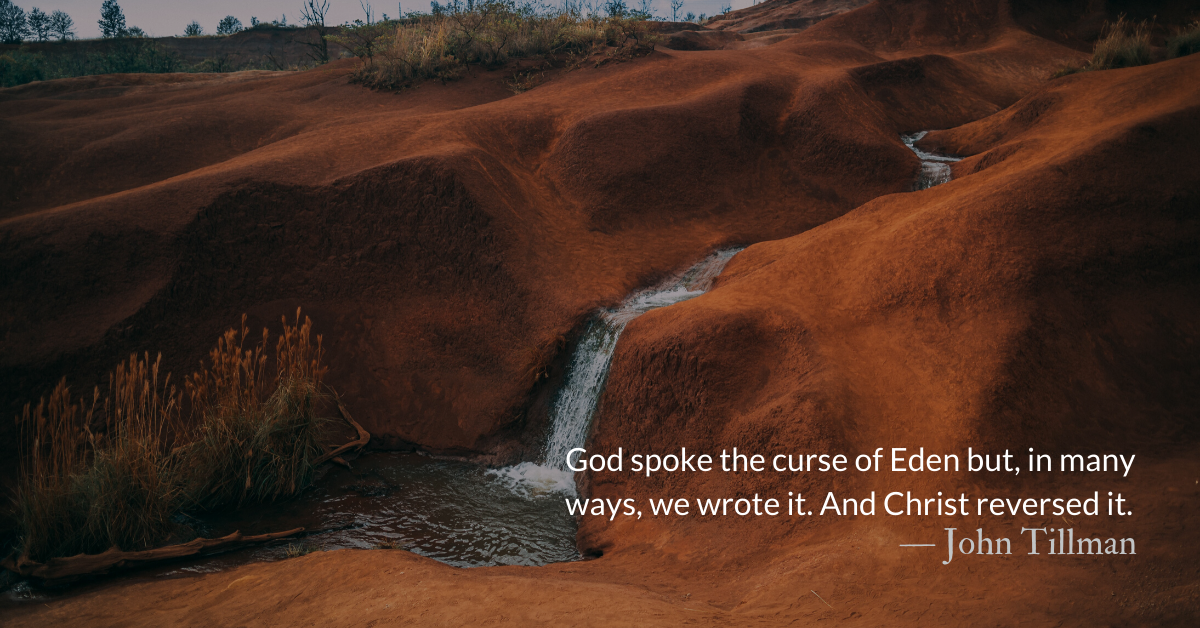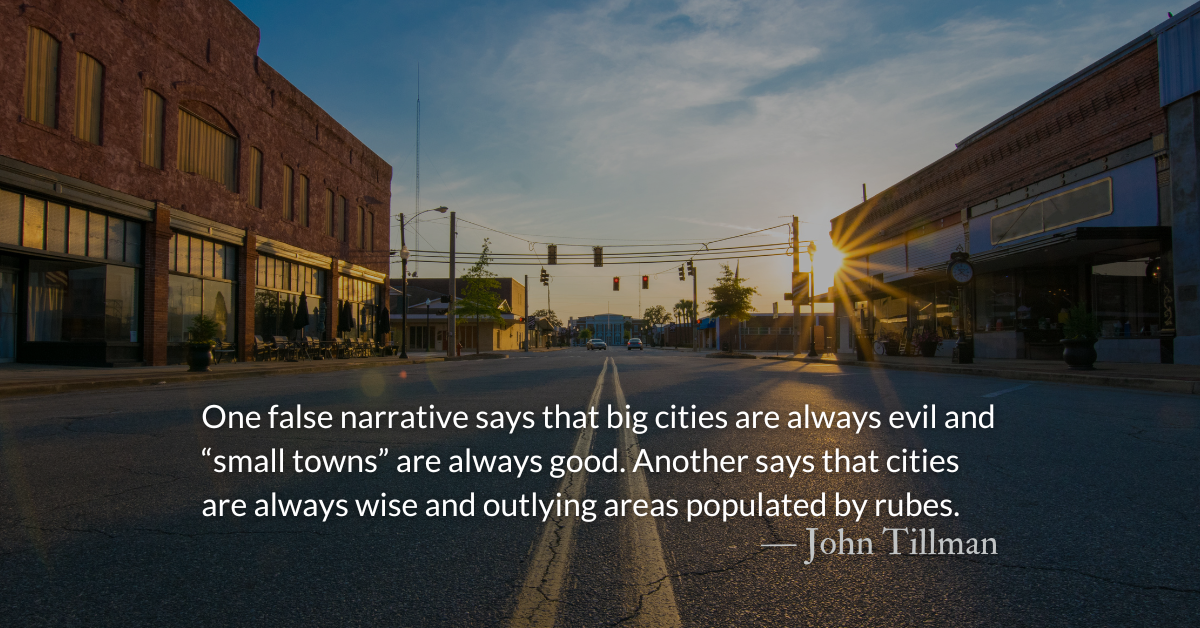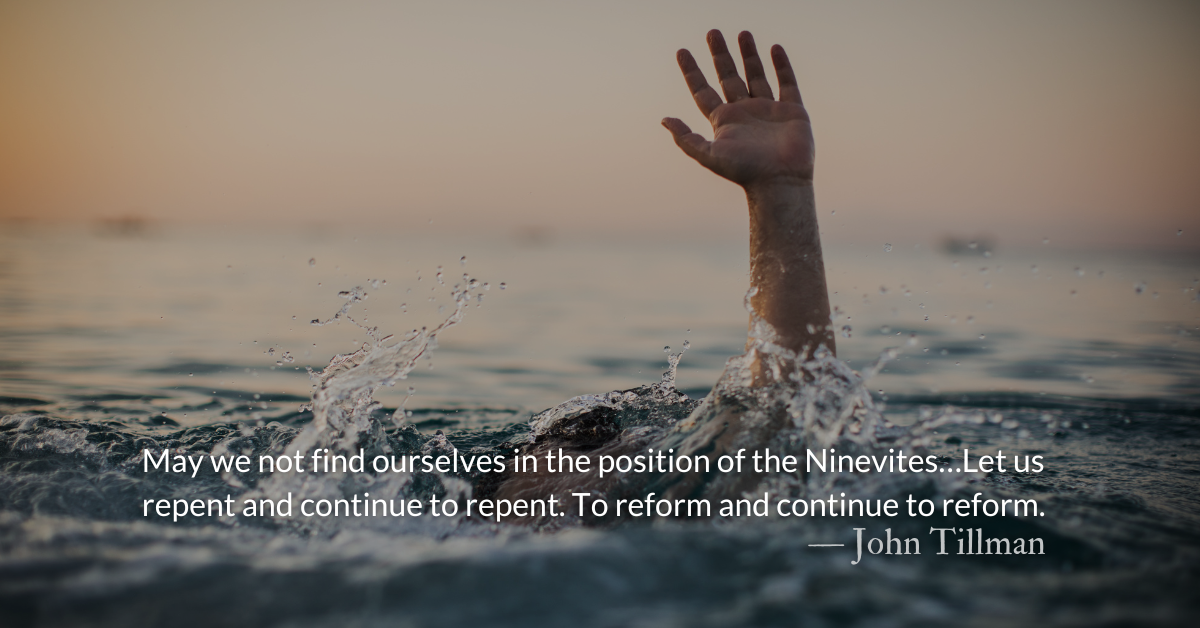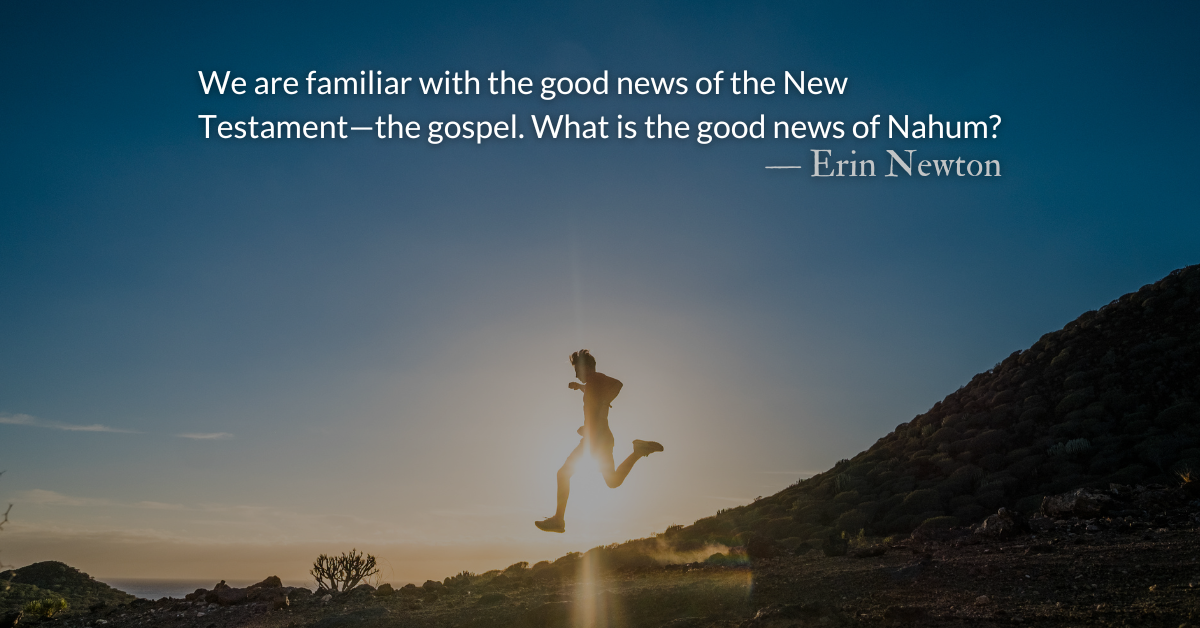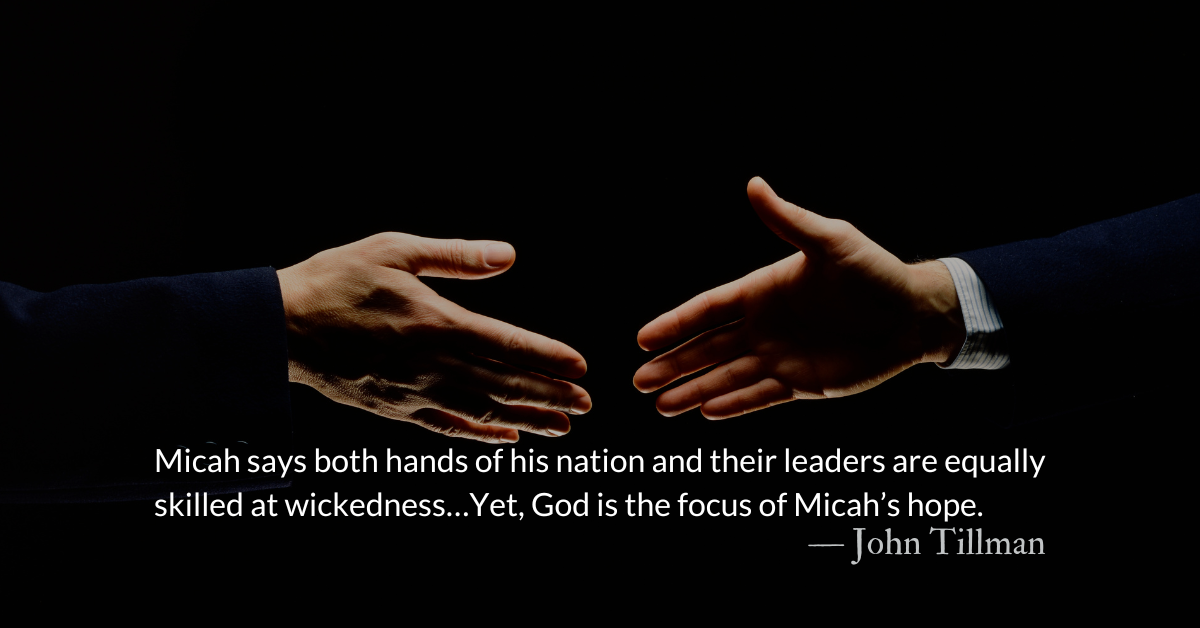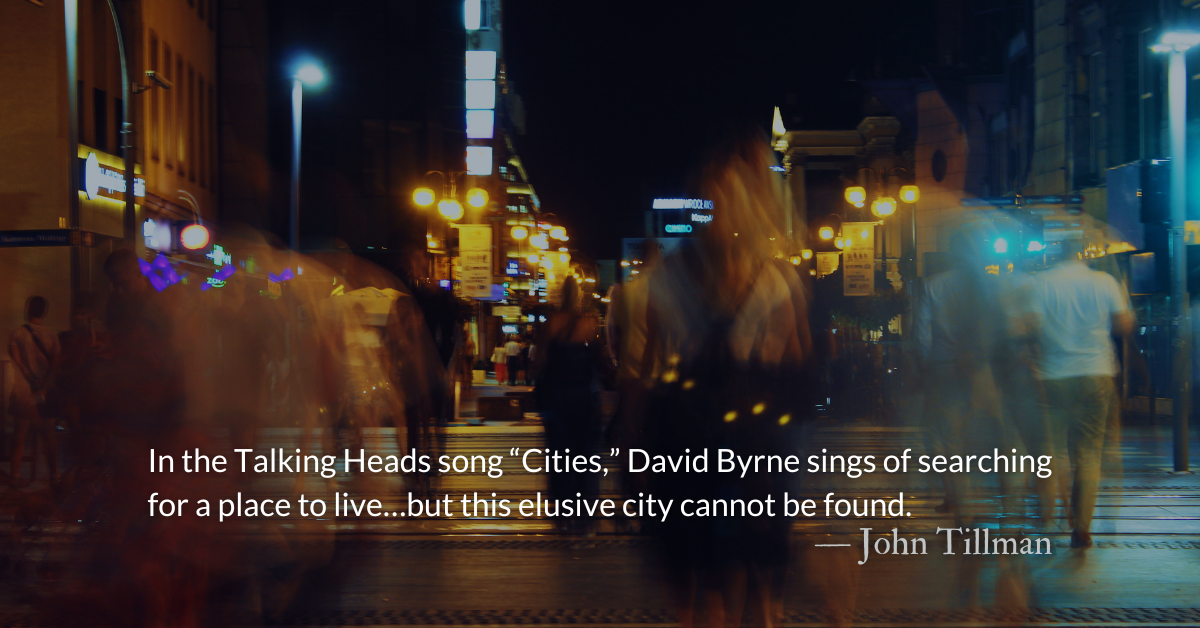Scripture Focus: Revelation 22.3, 17
No longer will there be any curse….The Spirit and the bride say, “Come!” And let the one who hears say, “Come!” Let the one who is thirsty come; and let the one who wishes take the free gift of the water of life.
Reflection: The Curse Reversed :: Epiphany
By John Tillman
In Eden, humanity hid from God because of sin and fear and from each other because of shame and blame. This carries on into our interactions today. We both hide from God and hide God from ourselves, pushing him away to make room for gods of our choosing and making. We take the power and dominion God gave as a blessing and curse ourselves with it.
God spoke the curse of Eden but, in many ways, we wrote it. And Christ reversed it.
Even as he speaks the curse of Eden, God purposes and promises to break it. Scripture describes a God constantly working to reverse the curse and speaking repetitions of the theme of the final paragraphs of the Bible, “Come.”
In Eden, God says, “Where are you?”
At Sinai, God says, “Follow me.”
In Galilee, Christ says, “Here I am.”
In the wilderness, Christ says, “Return to me.”
In Samaria, Christ says, “Ask me for water.”
In his teaching, Christ says, “Abide with me.”
At the table, Christ says, “Remember me.”
In the garden, Christ begs, “Be with me.”
At the beginning of John’s vision, Christ says, “Come up here.”
And here, at the end of God’s vision for the world and for us, God says, “Come.”
In the curse of Eden, God commits himself to a course of intervention on our behalf. The curse is made to be broken.
Epiphany is the revealing of Christ to the nations. It is God breaking through all of our concealments, coming out of hiding, breaking the curse of
banishment, and openly saying, “Come.”
The visions of Revelation can be intimidating, but we must remember the character of the God we serve, perfectly revealed to us in Jesus Christ. He is the same in the throne room as he was in the manger, as he was in the upper room washing our feet, as he was on the cross, as he was pressing the fingers of doubters into his hands, and as he is now, tenderly reaching out to all humanity.
As we enter the new year, may we remember, we do not cower before a punitively petulant God who from his pedestal pronounces our doom.
We kneel before a compassionately caring creator, who kneels lower than us, so that he may lift our face to look in his eyes.
Divine Hours Prayer: The Call to Prayer
I will call upon God, and the Lord will deliver me.
In the evening, in the morning, and at noonday, I will complain and lament, and he will hear my voice.
He will bring me safely back…God, who is enthroned of old, will hear me. — Psalm 55.17
– From The Divine Hours: Prayers for Autumn and Wintertime by Phyllis Tickle.
Today’s Readings
2 Chronicles 36 (Listen -4:26)
Revelation 22 (Listen -3:59)
Tomorrow’s Readings (Happy New Year!)
Ezra 1 (Listen -2:03)
Acts 1 (Listen -3:58)
Thank You, Donors, for a wonderful End-of-Year Giving response!
End of Year giving has increased again, for the second year in a row, with many increasing their gifts and also many first time donors. We are so thankful to God for your generosity. These end-of-year gifts will help us continue to improve the spiritual discipleship of readers around the globe with free, and ad-free, devotional content throughout 2020.
Today, being the last day of 2019, is the last opportunity for tax-deductible contributions for this year. If you have not yet given and intend to give, please follow the giving link or put your check in the mail today. Follow this link to our giving page or mail checks to:
The Park Forum
PO Box 185082
Fort Worth, TX, 76181
Spread the Word
If you are not able to support us financially, another simple action that tangibly helps our ministry is to share about The Park Forum. Liking or commenting on our social media posts (but especially sharing them) helps more people to see them. This type of exposure is far better than when we spend money on ads to promote our posts.
Forwarding our emails or sending links to our website to friends is another way to spread the gospel and to encourage Bible Literacy in your community of believers. Share a post with others to help them subscribe to our emails.
Read more about Supporting our Work
We are thankful for our donors’ gifts because they show the work of God in our donors’ hearts and their willingness to contribute to improving the spiritual discipleship of readers around the globe.
Read more about His Blessings, Our Curse :: A Guided Prayer
Jesus Christ became a curse for us…died to release the curse’s hold on us, then he rose to bring to us the full blessings of life that overflows with good things.

